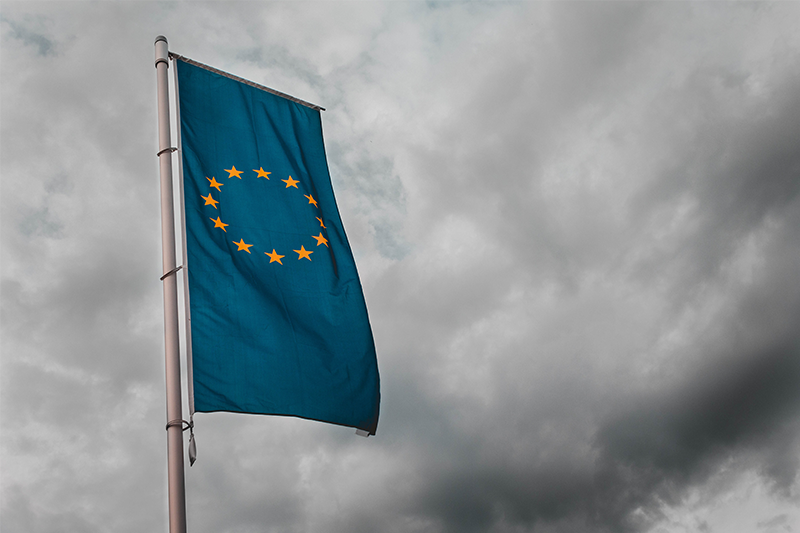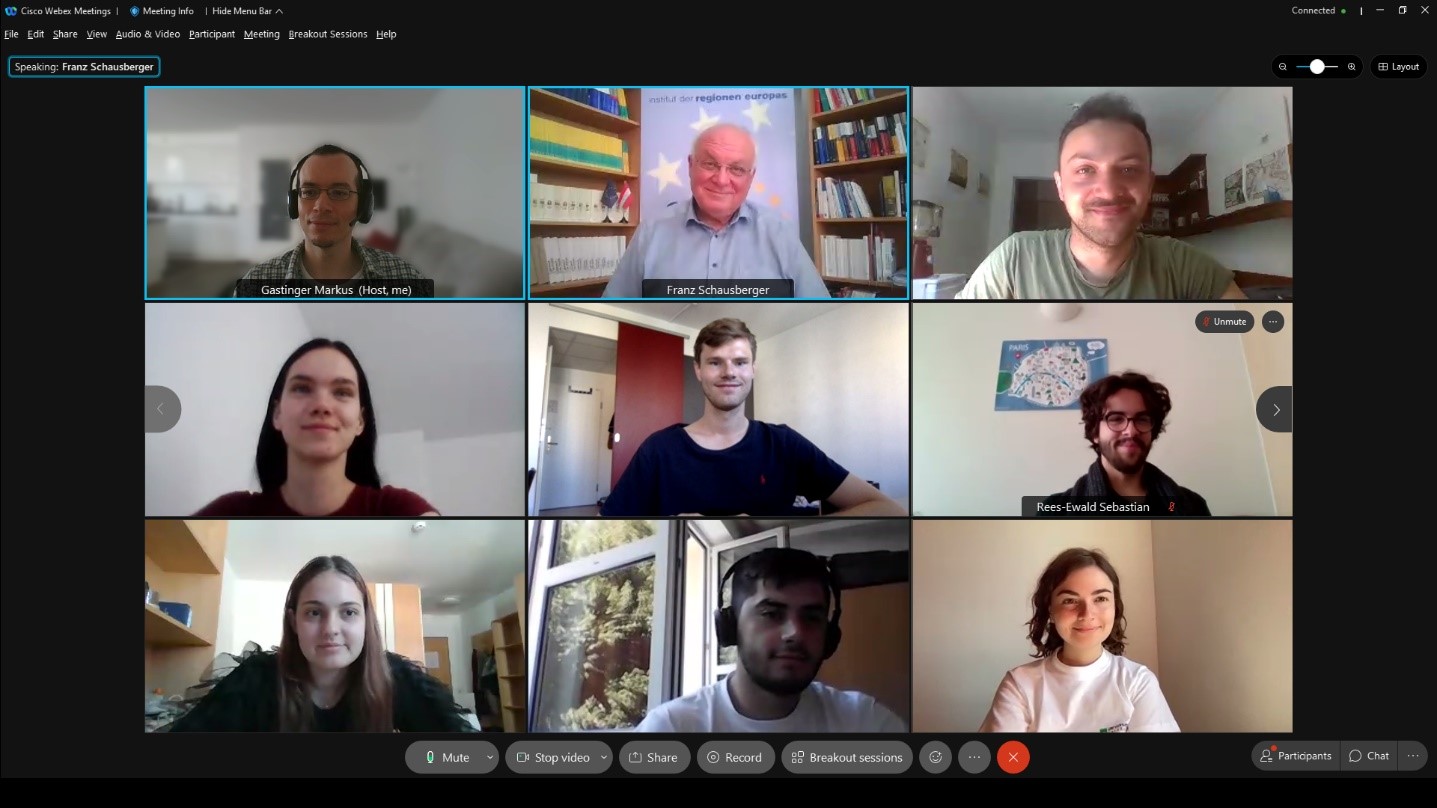Influence of regions in Europe on the European Union

On June 25, we concluded our seminar (with Dr. Markus Gastinger) on “Europe beyond Brussels” by talking to Prof. Dr. Franz Schausberger. Prof. Schausberger was governor (Landeshauptmann) of the Land Salzburg between 1996 and 2004. He also co-founded the Institute of the Regions of Europe in Salzburg and represents Salzburg at the European Committee of the Regions in Brussels. The presentation, which later gave way to an extremely engaging Q&A session, focused on regions inside the European Union.
Our guest lecturer introduced many remarkable ideas. Prof. Schausberger emphasized the idea that the strength of the regions is determined by the constitution of their member states. There are big differences between member states and those regions with more constitutional power are generally doing better when it comes to influencing the EU. Furthermore, Prof. Schausberger summarized the principle of subsidiarity as the “EU when necessary, national where possible”. He highlighted, however, that the idea of subsidiarity should also apply between member states and their regions. In what follows, I summarize three more interesting points from the Q&A.
Is it difficult to encourage all member states to take part in this regional work? Are bigger countries better at this?
The level of involvement of the regions is not really determined by the size of the country so much as it is by its history. For example, while Denmark has never been a decentralized country, Austria’s regions have had their identity for many centuries. However, if a country is smaller, it is difficult to divide it into more regions, but there is a local level that would have to become involved in national and EU problems, nonetheless. At the same time, people like to have a local or regional identity because it is much easier to speak with the representative of your city than with that of your country. If there is no regional level, then there is a stronger local level. In both cases, this helps people feel better represented.

Can regions reduce the democratic deficit in the EU then?
The Lisbon Treaty strengthened regions and municipalities, which contributed to the EU becoming more democratic. The regions play a key role in strengthening the democratic process. However, to make the EU even more democratic, the Treaty should be modified and the European Committee of the Regions should be further strengthened. Unfortunately, this is not possible at the moment. If all member states have pro-European governments changing the Treaty would be an option. But there are a few Eurosceptic states that block progress towards democratization.
Still, we should keep making the argument for strengthening the power of regions – in Europe but also nationally. This is also what the European Commission does. For example, the Commission always says that the regional level has to be involved, also already during the accession process. Formally, the Commission can, of course, not impose constitutional changes on the member states. But the Commission makes clear that it wants to have strong regional and local partners because they implement about 80% of EU laws. So, the regional and local level needs to be strong for the EU to be strong.
Will the divisions between Eurosceptic and pro-European governments become worse and what to do about it?
All countries, upon entering the EU, are stable democracies. The problem appears when member states change after entering the EU. Poland is a good example of this phenomenon. When it entered the EU, Poland was a democratic state. They supported all the necessary EU reforms and values. Then there was an election and a political change which allowed a Eurosceptic party to take control.
The policy they are endorsing now is extremely different from the agenda of the prior government. If a state is pro-European, problems can be easily fixed through reforms. Poland and Hungary alike are interested, at the moment, in the economic support and not in the EU’s values. This could, of course, change after the next elections.
What to do about it is a difficult issue, because the situation could change again if, after the next elections, a pro-European government wins. Still, I think the EU needs to think about what it can do if a country in the future tries to “destroy the EU from within”. Such a country would effectively just block any decisions taking shape. The Nazis also rose to power by destroying parliamentary work first.
We need to consider if – in this situation – the EU should be able to kick out countries because they do not share the EU’s values anymore. But I really do hope that the domestic situation within these countries will change and such an extreme step will never be necessary. In particular, it will need active and engaged young Europeans like you to prevent history from repeating itself.
We are very grateful to Prof. Schausberger for his participation and valuable insights!
Cosgarea Adela-Alexandra
Photo Credits:
Title photo: Sara Kurfeß via Unsplash
Screenshot: Markus Gastinger





